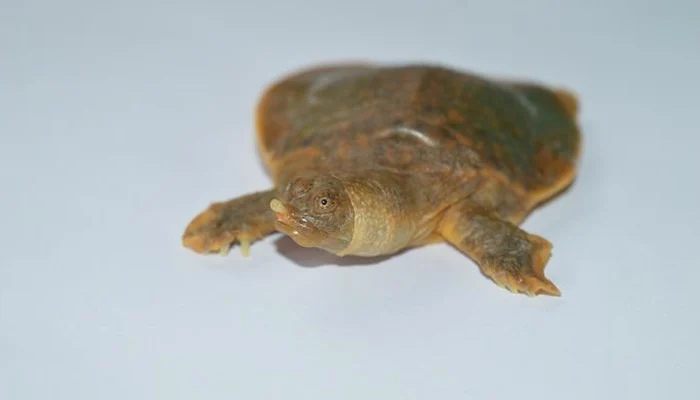Experts from the University of Portsmouth identified an extremely uncommon type of turtle in India, which conservationists consider endangered.
The breeding secret nest of Cantor’s gigantic softshell turtle was discovered on the banks of the Chandragiri River in Kerala.
These soft turtles are native to the rivers of South and Southeast Asia.
According to a University of Portsmouth spokeswoman, the species was noted for its “rarity and secretive nature”.
The spokeswoman added that it had “long been a subject of fascination and concern among conservationists.”
“For years, the Cantor turtle’s existence has barely been a murmur against the backdrop of India’s bustling biodiversity, with sightings so scarce that the turtle’s very presence seemed like a ghost from the past,” said Dr Francoise Cabada-Blanco, from the university’s school of biological sciences.
According to the university spokeswoman, habitat loss has caused it to disappear from much of its ecosystem. Locals also gather them heavily for meat, and fisherman frequently kill them when they get trapped in fishing gear.”
Earlier, various attempts were made to track the species using scientific means. This time, they used a new strategy to trace the egg-laying species, relying on local knowledge, and were successful.
Dr. Cabada-Blanco, who is also the author of the study published in the journal Oryx, stated that the team was able to “engage the community really effectively,” with locals sharing stories of historical sightings and even “aiding in the live release of individuals accidentally caught as by-catch.”
For the first time, a female freshwater species’ nest and egg rescue were documented. The hatchlings were then released into the river.
Cantor’s huge softshell turtles are over 1m long and weigh more than 100kg (220lbs).
The Portsmouth team hopes to create a community hatchery and nursery near the site of their discovery.
Ayushi Jain of the Zoological Society of London’s Edge of Existence Programme stated, “The community’s willingness to engage formed the backbone of our project, allowing us to record not just fleeting glimpses of the turtles but evidence of a reproductive population — a discovery that rewrites the narrative of a species thought to be vanishing from India’s waters.”







